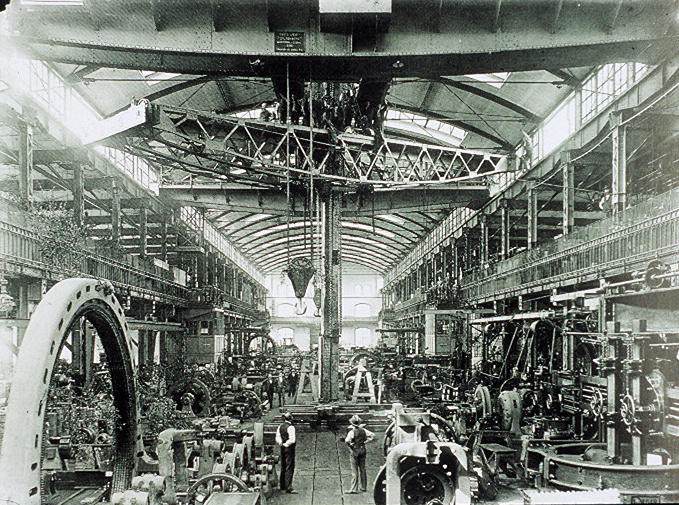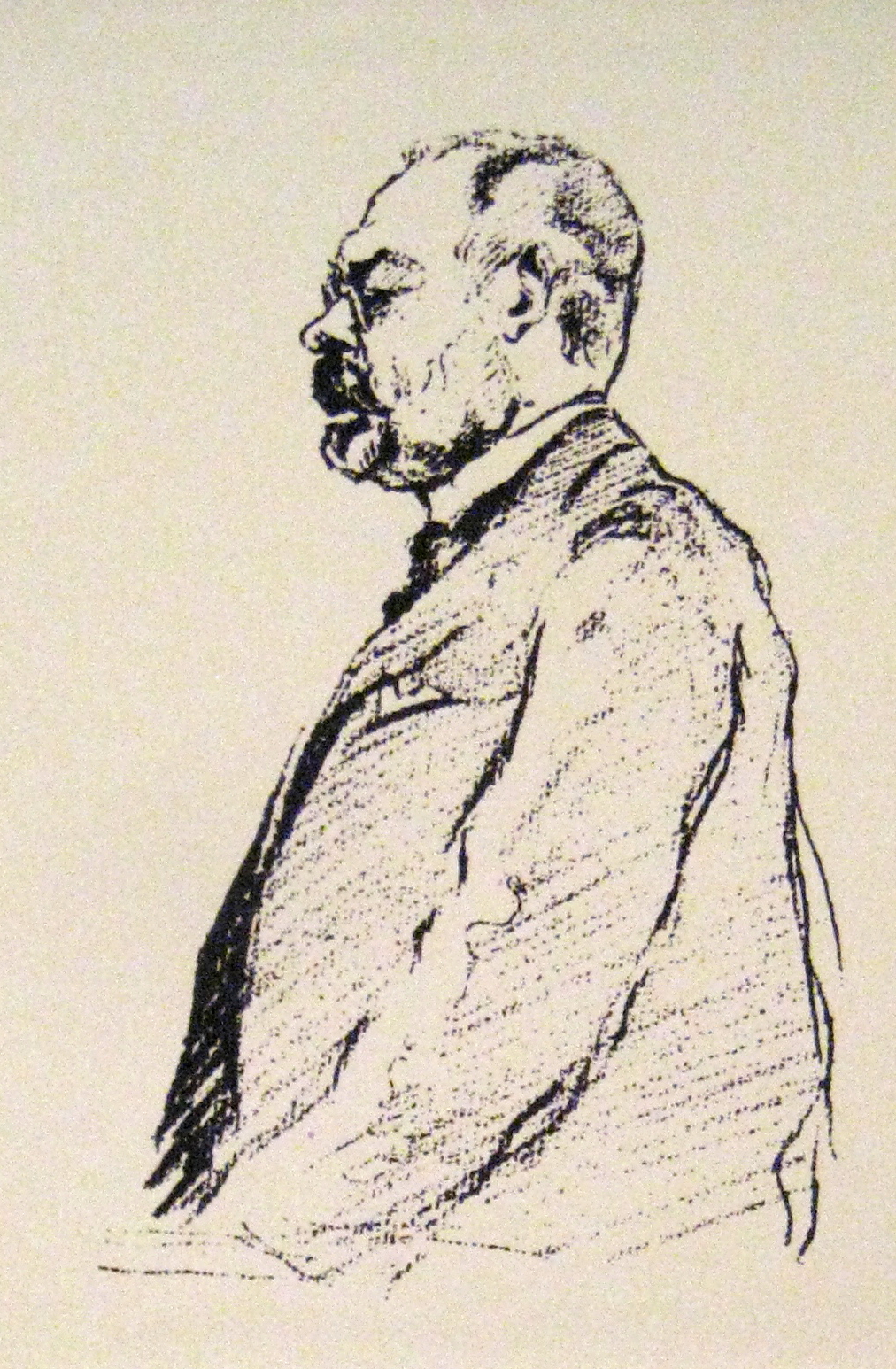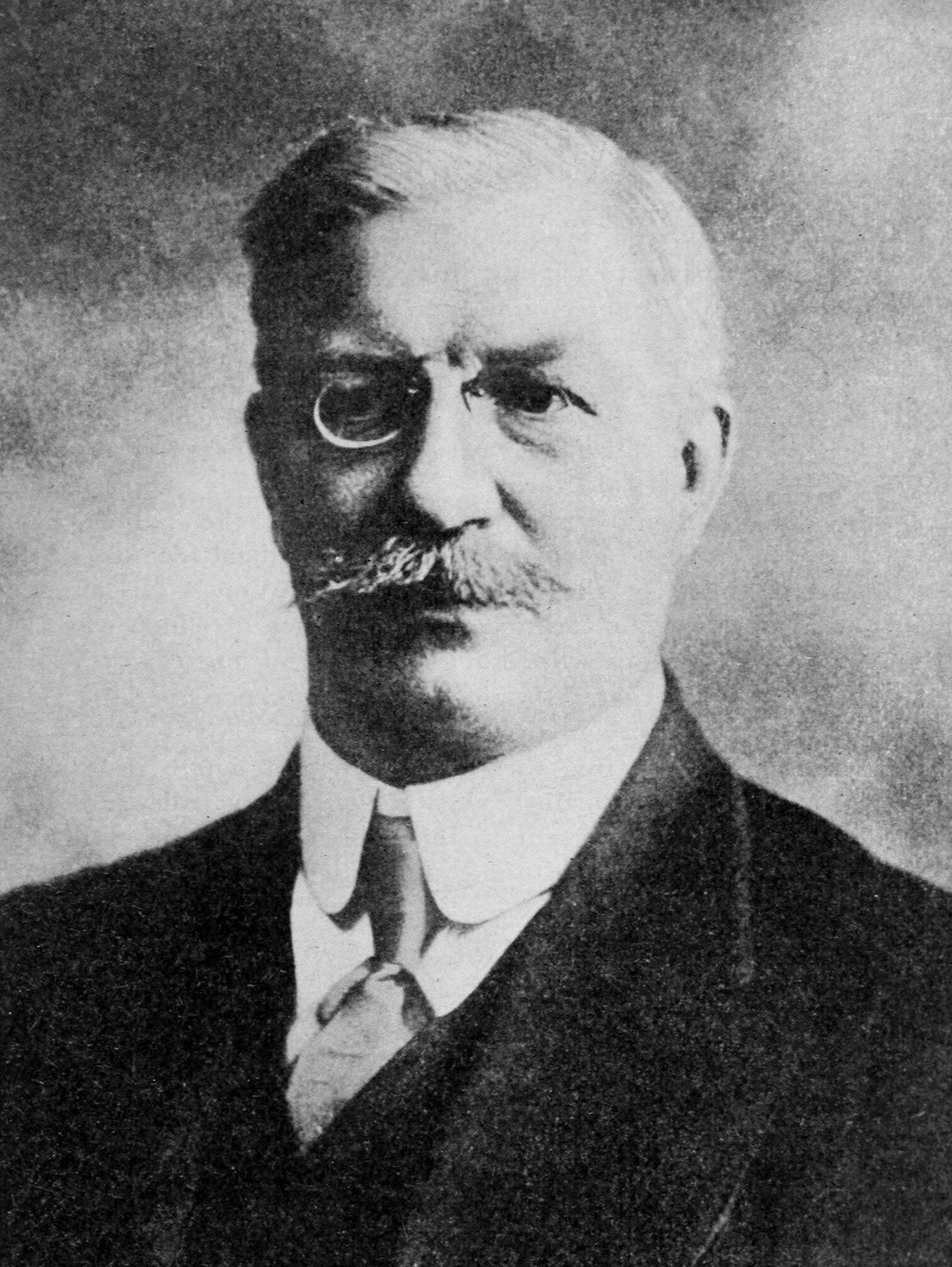|
Sergey Taboritsky
Sergey Vladimirovich Taboritsky (russian: Сергей Владимирович Таборицкий; 12 August 1897 – 16 October 1980) was a Russian ultranationalist and monarchist. From 1936 to 1945, he was the deputy of the Bureau for the Russian Refugees in Germany. After 1942, Taboritsky became a member of the Nazi Party, and directly collaborated with the Gestapo. Biography Early years Sergey and his younger brother, Nikolay Taborisky (the spelling of his name at the beginning of the twentieth century was inconsistent; during the emigration years, the "Taboritsky" variant was used) were the illegitimate children of baptized Jewish tailor and owner of a fashion shop Anna Vladimirovna and her cohabitant, Sergey Alexandrovich Zapevalov (who broke up with her in 1901). Both brothers were raised as Orthodox Christians. Taboritsky's godfather was the future Ober-Procurator Vladimir Sabler. The brothers had the surname of Anna Vladimirovna's first husband, also Jewish, Wulf ... [...More Info...] [...Related Items...] OR: [Wikipedia] [Google] [Baidu] |
Russian Empire
The Russian Empire was an empire and the final period of the Russian monarchy from 1721 to 1917, ruling across large parts of Eurasia. It succeeded the Tsardom of Russia following the Treaty of Nystad, which ended the Great Northern War. The rise of the Russian Empire coincided with the decline of neighbouring rival powers: the Swedish Empire, the Polish–Lithuanian Commonwealth, Qajar Iran, the Ottoman Empire, and Qing China. It also held colonies in North America between 1799 and 1867. Covering an area of approximately , it remains the third-largest empire in history, surpassed only by the British Empire and the Mongol Empire; it ruled over a population of 125.6 million people per the 1897 Russian census, which was the only census carried out during the entire imperial period. Owing to its geographic extent across three continents at its peak, it featured great ethnic, linguistic, religious, and economic diversity. From the 10th–17th centuries, the land ... [...More Info...] [...Related Items...] OR: [Wikipedia] [Google] [Baidu] |
February Revolution
The February Revolution ( rus, Февра́льская револю́ция, r=Fevral'skaya revolyutsiya, p=fʲɪvˈralʲskəjə rʲɪvɐˈlʲutsɨjə), known in Soviet historiography as the February Bourgeois Democratic Revolution and sometimes as the March Revolution, was the first of two revolutions which took place in Russia in 1917. The main events of the revolution took place in and near Petrograd (present-day Saint Petersburg), the then-capital of Russia, where long-standing discontent with the monarchy erupted into mass protests against food rationing on 23 February Old Style (8 March New Style). Revolutionary activity lasted about eight days, involving mass demonstrations and violent armed clashes with police and gendarmes, the last loyal forces of the Russian monarchy. On 27 February O.S. (12 March N.S.) the forces of the capital's garrison sided with the revolutionaries. Three days later Tsar Nicholas II abdicated, ending Romanov dynastic rule and the Russian Empi ... [...More Info...] [...Related Items...] OR: [Wikipedia] [Google] [Baidu] |
Moabit
Moabit () is an inner city locality in the borough of Mitte, Berlin, Germany. As of 2016, around 77,000 people lived in Moabit. First inhabited in 1685 and incorporated into Berlin in 1861, the former industrial and working-class neighbourhood is fully surrounded by three watercourses, which define its present-day border. Between 1945 and 1990, Moabit was part of the British sector of West Berlin and directly bordered East Berlin. Until the administrative reform in 2001, Moabit was a part of the district of Tiergarten. Colloquially, the name ''Moabit'' also refers to the Central Criminal Court (''Strafgericht'') and detention centre, which deals with all criminal cases in Berlin and is based in Moabit. Name The origin of the name ''Moabit'' is disputed. According to one account, it can be traced back to the Huguenots, in the time of King Frederick William I of Prussia. These French refugees are said to have named their new residence in reference to the Biblical description ... [...More Info...] [...Related Items...] OR: [Wikipedia] [Google] [Baidu] |
Kadet
) , newspaper = ''Rech'' , ideology = ConstitutionalismConstitutional monarchismLiberal democracyParliamentarism Political pluralismSocial liberalism , position = Centre to centre-left , international = , colours = Azure White , country = Russia The Constitutional Democratic Party (russian: Конституцио́нно-демократи́ческая па́ртия, translit=Konstitutsionno-demokraticheskaya partiya, K-D), also called Constitutional Democrats and formally the Party of People's Freedom (russian: links=no, Па́ртия Наро́дной Свобо́ды), was a centrist, liberal political party in the Russian Empire that promoted Western constitutional monarchy — among other policies — and attracted a base ranging from moderate conservatives to mild socialists. Party members were called Kadets (or Cadets) from the abbreviation K-D of the party name. Konstantin Kavelin's and Boris Chicherin's writings ... [...More Info...] [...Related Items...] OR: [Wikipedia] [Google] [Baidu] |
Vladimir Dmitrievich Nabokov
Vladimir Dmitrievich Nabokov (russian: Влади́мир Дми́триевич Набо́ков; 21 July Old_Style_and_New_Style_dates">O.S._8_July.html" ;"title="Old_Style_and_New_Style_dates.html" ;"title="nowiki/>O.S._8_July">Old_Style_and_New_Style_dates.html"_;"title="nowiki/>Old_Style_and_New_Style_dates">O.S._8_July1870_–_28_March_1922)_was_a_Russian_criminology.html" "title="Old Style and New Style dates">O.S. 8 July">Old_Style_and_New_Style_dates.html" ;"title="nowiki/>Old Style and New Style dates">O.S. 8 July1870 – 28 March 1922) was a Russian criminology">criminologist, journalist, and progressive statesman during the last years of the Russian Empire. He was the father of Russian-American author Vladimir Nabokov. Early life Nabokov was born in Tsarskoe Selo, into a wealthy and aristocratic family. His father Dmitry Nabokov (1827–1904) was a List of Justice Ministers of Imperial Russia, Justice Minister in the reign of Alexander II from 187 ... [...More Info...] [...Related Items...] OR: [Wikipedia] [Google] [Baidu] |
Pavel Milyukov
Pavel Nikolayevich Milyukov ( rus, Па́вел Никола́евич Милюко́в, p=mʲɪlʲʊˈkof; 31 March 1943) was a Russian historian and liberal politician. Milyukov was the founder, leader, and the most prominent member of the Constitutional Democratic party (known as the ''Kadets''). He changed his view on the monarchy between 1905 and 1917. In the Russian Provisional Government, he served as Foreign Minister, working to prevent Russia's exit from the First World War. Pre-revolutionary career Pavel was born in Moscow in the upper-class family of Nikolai Pavlovich Milyukov, a professor in architecture who taught at the Moscow School of Painting, Sculpture and Architecture. Milyukov was a member of the House of Milukoff. Milyukov studied history and philology at the Moscow University, where he was influenced by Herbert Spencer, Auguste Comte, and Karl Marx. His teachers were Vasily Klyuchevsky and Paul Vinogradoff. In summer 1877 he briefly took part in Russo-Tur ... [...More Info...] [...Related Items...] OR: [Wikipedia] [Google] [Baidu] |
Alexander Guchkov
Alexander Ivanovich Guchkov (russian: Алекса́ндр Ива́нович Гучко́в) (14 October 1862 – 14 February 1936) was a Russian politician, Chairman of the Third Duma and Minister of War in the Russian Provisional Government. Early years Alexander Guchkov was born in Moscow. Unlike most of the conservative politicians of that time, Guchkov did not belong to the Russian nobility. His father, the grandson of a peasant, was a factory owner of some means, whose family came from a stock of Old Believers who had acknowledged the authority of the Russian Orthodox Church while keeping their ancient ritual. His mother was French. Guchkov studied history and humanities at the Moscow State University, and, after having gone through his military training in a grenadier regiment, left for Germany where he read political economy in Berlin under Schmoller. Academic studies were, however, not suited to his active and adventurous character. He gave them up and started travel ... [...More Info...] [...Related Items...] OR: [Wikipedia] [Google] [Baidu] |
Soviet Union
The Soviet Union,. officially the Union of Soviet Socialist Republics. (USSR),. was a transcontinental country that spanned much of Eurasia from 1922 to 1991. A flagship communist state, it was nominally a federal union of fifteen national republics; in practice, both its government and its economy were highly centralized until its final years. It was a one-party state governed by the Communist Party of the Soviet Union, with the city of Moscow serving as its capital as well as that of its largest and most populous republic: the Russian SFSR. Other major cities included Leningrad (Russian SFSR), Kiev (Ukrainian SSR), Minsk ( Byelorussian SSR), Tashkent (Uzbek SSR), Alma-Ata (Kazakh SSR), and Novosibirsk (Russian SFSR). It was the largest country in the world, covering over and spanning eleven time zones. The country's roots lay in the October Revolution of 1917, when the Bolsheviks, under the leadership of Vladimir Lenin, overthrew the Russian Provisional Government ... [...More Info...] [...Related Items...] OR: [Wikipedia] [Google] [Baidu] |
Paul Milyukov
Pavel Nikolayevich Milyukov ( rus, Па́вел Никола́евич Милюко́в, p=mʲɪlʲʊˈkof; 31 March 1943) was a Russian historian and liberal politician. Milyukov was the founder, leader, and the most prominent member of the Constitutional Democratic party (known as the ''Kadets''). He changed his view on the monarchy between 1905 and 1917. In the Russian Provisional Government, he served as Foreign Minister, working to prevent Russia's exit from the First World War. Pre-revolutionary career Pavel was born in Moscow in the upper-class family of Nikolai Pavlovich Milyukov, a professor in architecture who taught at the Moscow School of Painting, Sculpture and Architecture. Milyukov was a member of the House of Milukoff. Milyukov studied history and philology at the Moscow University, where he was influenced by Herbert Spencer, Auguste Comte, and Karl Marx. His teachers were Vasily Klyuchevsky and Paul Vinogradoff. In summer 1877 he briefly took part in Russo-T ... [...More Info...] [...Related Items...] OR: [Wikipedia] [Google] [Baidu] |
Protocols Of The Elders Of Zion
''The Protocols of the Elders of Zion'' () or ''The Protocols of the Meetings of the Learned Elders of Zion'' is a fabricated antisemitic text purporting to describe a Jewish plan for global domination. The hoax was plagiarized from several earlier sources, some not antisemitic in nature. It was first published in Russia in 1903, translated into multiple languages, and disseminated internationally in the early part of the 20th century. It played a key part in popularizing belief in an international Jewish conspiracy. Distillations of the work were assigned by some German teachers, as if factual, to be read by German schoolchildren after the Nazis came to power in 1933, despite having been exposed as fraudulent by the British newspaper ''The Times'' in 1921 and the German in 1924. It remains widely available in numerous languages, in print and on the Internet, and continues to be presented by neofascist, fundamentalist and antisemitic groups as a genuine document. It has been ... [...More Info...] [...Related Items...] OR: [Wikipedia] [Google] [Baidu] |
Munich
Munich ( ; german: München ; bar, Minga ) is the capital and most populous city of the States of Germany, German state of Bavaria. With a population of 1,558,395 inhabitants as of 31 July 2020, it is the List of cities in Germany by population, third-largest city in Germany, after Berlin and Hamburg, and thus the largest which does not constitute its own state, as well as the List of cities in the European Union by population within city limits, 11th-largest city in the European Union. The Munich Metropolitan Region, city's metropolitan region is home to 6 million people. Straddling the banks of the River Isar (a tributary of the Danube) north of the Northern Limestone Alps, Bavarian Alps, Munich is the seat of the Bavarian Regierungsbezirk, administrative region of Upper Bavaria, while being the population density, most densely populated municipality in Germany (4,500 people per km2). Munich is the second-largest city in the Bavarian dialects, Bavarian dialect area, ... [...More Info...] [...Related Items...] OR: [Wikipedia] [Google] [Baidu] |
Mecklenburg
Mecklenburg (; nds, label=Low German, Mękel(n)borg ) is a historical region in northern Germany comprising the western and larger part of the federal-state Mecklenburg-Western Pomerania. The largest cities of the region are Rostock, Schwerin, Neubrandenburg, Wismar and Güstrow. The name Mecklenburg derives from a castle named '' Mikilenburg'' (Old Saxon for "big castle", hence its translation into New Latin and Greek as ), located between the cities of Schwerin and Wismar. In Slavic languages it was known as ''Veligrad'', which also means "big castle". It was the ancestral seat of the House of Mecklenburg; for a time the area was divided into Mecklenburg-Schwerin and Mecklenburg-Strelitz among the same dynasty. Linguistically Mecklenburgers retain and use many features of Low German vocabulary or phonology. The adjective for the region is ''Mecklenburgian'' or ''Mecklenburgish'' (german: mecklenburgisch, link=no); inhabitants are called Mecklenburgians or Mecklenburgers ( ... [...More Info...] [...Related Items...] OR: [Wikipedia] [Google] [Baidu] |





